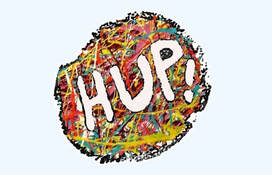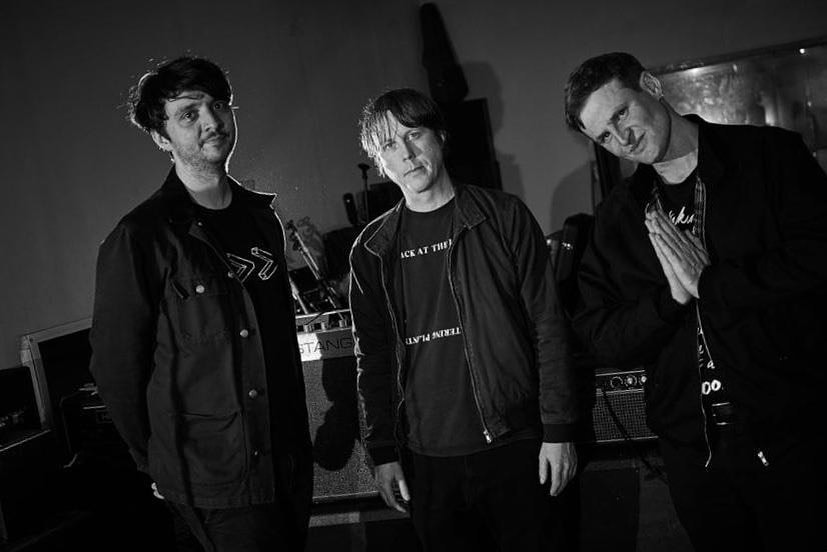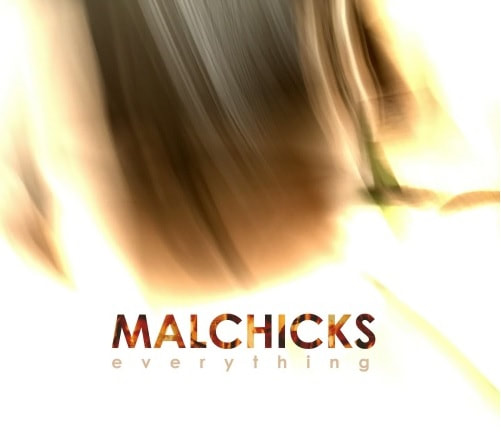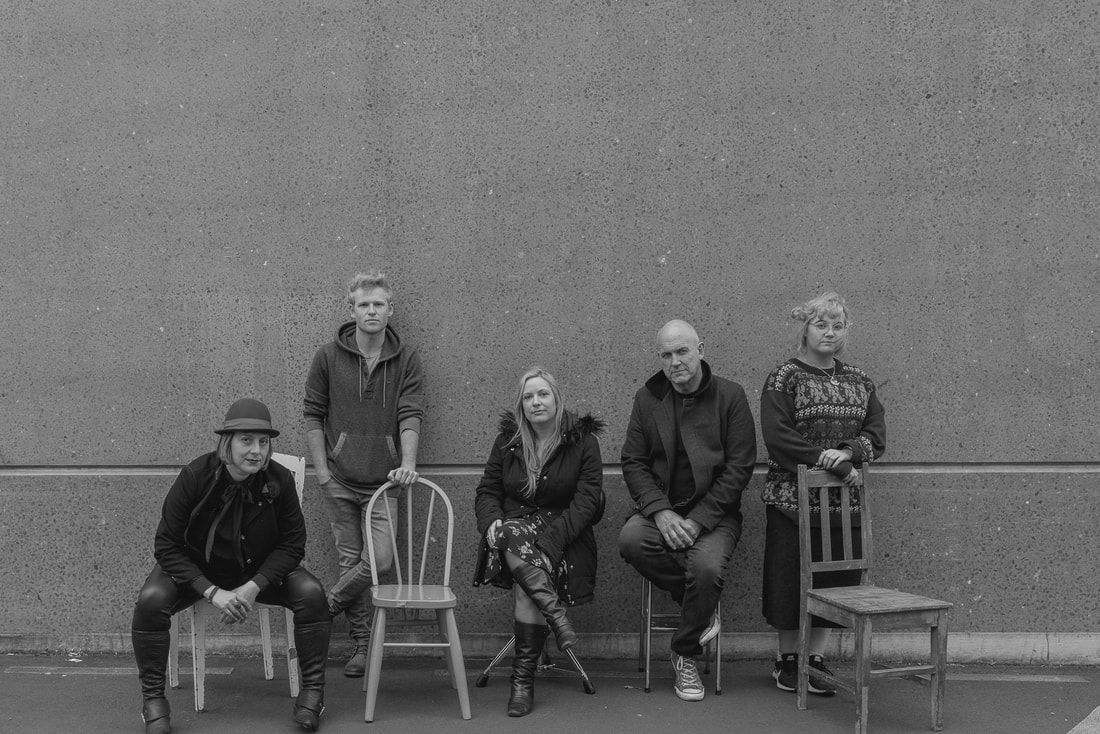|
Die! Die! Die! make a welcome return to Kirikiriroa this coming Friday (Dec 13th) with a show at Nivara Lounge with Coolies, OKSUN OX and Sora Shima. Hayden Pyke caught up with band's guitarist and vocalist Andrew Wilson ahead of the show.
Nostalgia is a bastard of a thing. It serves up all this expectation. It colours things often in ways that aren’t as exacting on a revisit. Finding out I was going to have a chat to Die! Die! Die! guitarist and vocalist, Andrew Wilson about (among other things) the reissue of their acclaimed album Promises, Promises, I’ll admit I was a little nervous. Promises, Promises was the soundtrack to a particular time in my version of Hamilton, my little Nissan Pulsar and several raucous nights on Vic Street back in 2007-08ish. A CD long since lost or given to an ex-girlfriend but remembered with great fondness. Had my memories changed the facts or vice versa? I needn’t have worried. The album and its vocalist are just as endearing after all this time, which is probably an insult to a punk band, but never meant that way. Andrew tells me that he still considers Die! Die! Die! just that, a punk band, though they’ve been called all kinds of other things. Labels like noise pop, post punk are always thrust upon the group never created from the inside and aren’t generally that helpful. I wondered about raising a previous interview where the band recounted playing The China Hardcore Music Festival and felt they were being booed for not being ‘Hardcore’ enough. In fairness, that’s not entirely a labelling issue, and our conversation had moved on. What had occurred in China at that time was that Lachlan Anderson left the group leaving Andrew and drummer Mike(y) Prain once again without a bassist. Times have turned however as Andrew tells me that Lachie is back, and this change seems like Die! Die! Die! to a T. The band has often had a rotating cast of bassists, several much-needed hiatuses and there are times when Die! Die! Die! just weren’t doing music. Hell, they were meant to be playing their last show in the summer of ‘03-04. Andrew explained that there have been many times the band had stopped being fun, wasn’t sustainable or just in a “bullshit holding pattern,” and so these breaks and personal changes were always on the cards. But the band wasn’t over. Andrew and Mikey’s friendship is such that not only has the band continued, it produced some of the best music of their careers. The spikey and aggressive EP, O (pronounced ‘Oh’, and not ‘Zero’ as I did in one of my many gaffes’ during the interview) saw Die! Die! Die! with Lachie back in the fold. It became popular in part due to the band’s ability to play it live with stark replication of the record. Previous outing, Charm.Offensive, was heavily produced with plenty of over dubbing and while that produced a noisy sonic aesthetic all of its own, it became hard to duplicate live. Andrew seems spurred on by the relative success of O, and is hoping the re-issue of Promises, Promises, will get enough money together that the band can record again without, “owing anyone”. Andrew did qualify that by saying, “When we release music, we don’t expect it to sell!” The recent success may also be in part due to the use of bandcamp (and subsequent interview with Nick Fulton there) and streaming sites. Not that Andrew could tell me much about that, having only signed up to Spotify in the last few months. He recalled the early days of the band when record labels would foot the bill for studio time, including their famous trip to Chicago to record with Steve Albini who produced records for the likes of Nirvana and The Stooges. Things are being done a lot differently now with the band calling their own shots. Andrew explained that every time personalities or professionals in the music industry told them to do something a certain way, it wouldn’t work. So, when the band head back to Chicago next year to once again record with Steve Albini, it will be under their own steam. First however, they’ve got to get to Hamilton. Yes, they’ve had coveted spots at SXSW and toured Europe, Asia, Russia, but they (unlike many others) have always had time for Hamilton. They’ve even skipped the capital in the past to make sure The Tron gets its dose of Die! Die! Die!, and for that and on behalf of our little town, I said a heartfelt thank you. I’ve seen Die! Die! Die! play in venues like Soul (RIP), Void (RIP) and Ward Lane (RIP) over the years and recall a time Andrew swung from a light fitting which we agreed may well have actually been The Mint Chicks’ Kody Neilson. Nevertheless, their high energy live show will be a timely reminder of the legacy of Die! Die! Die! - grab your presale tix HERE !
0 Comments
I N T E R V I E W Sonic Archaeology: A Q&A with Malchicks about ‘Everything’ With Ian Duggan Failsafe Records’ Rob Mayes has been on a mission to “tie up the loose ends”, releasing remastered versions of material from the label that “hasn’t yet had that treatment”. The latest cab off the rank is Auckland band Malchicks, who are releasing the 23-track ‘Everything’. The album features previously released songs from the bands 1992 ‘Lotus’ EP, 1995s ‘Mercury’ album, and the song ‘Vanilla’ from the 1991 ‘Freak the Sheep’ compilation. Further, it includes seven unreleased early recordings, representing 93 and a half minutes of music! We talked to Malchicks guitarist/vocalist Matt Dalzell about the release; does it really, really contain “everything”? Have the songs stood the test of time? And if Malchicks weren’t shoegaze, what were they? HUP: On the new release, it might have been tempting to present the album and the EP separately, prior to the bonus tracks. However, you have mixed up tracks from the EP and album; who was responsible for this reordering, and how do you think the new order works relative to the original releases? Matt: There were a lot of possibilities and permutations; the simplest was to remaster the CDs and add Vanilla from the Freak the Sheep compilation. We then discovered a treasure trove of old mix-downs on cassette, DAT, and reel masters which we restored - call it sonic archaeology or something. We even found some live stuff on DATs. So the question then was if we put previously unreleased material in - if it could be scrubbed up and polished - then what order to put it in? Rob [Mayes] put most of the thinking into it, we threw in some ideas, and to me it really works and feels new. I think of it more like curating an exhibition. Doing it linear style might have been simpler and more obvious, but that's not really our thing. HUP: Looking back at all the songs, how do you feel your music has stood the test of time? Do you still look back at the songs with pride, or are there tracks you might have done differently if you recorded them today? Matt: There are definitely some tracks I listen to and think yes, we really nailed what we were trying to do with the combination of guitar power and harmonics, vocals, and some inventive beats and bass to drive the songs. And some happy accidents or surprises that appear. Others - well, I probably had the same opinion during final mix-down in The Lab - you're always going to have some "if only" moments, but you have to lay down the best tracks and takes you can and work towards a mix that everyone's comfortable with, before the grim reality of time and budget draws things to a close. Some parts still make me laugh; they're kind of in-jokes. There's a guitar line in Eros that appears out of nowhere because Chris couldn't find which channel it had been tracked to and couldn't mute it. There's another where a guitar goes waay out of tune halfway through the song, but we didn't notice until final mix, and there was no alternate take, so we kept it anyway. I think it works, like a dash of vinegar on chips. HUP: You have been described as ‘shoegazer sonic dream-pop’, and compared with the likes of Lush, My Bloody Valentine, and Ride; comparisons I understand you are uneasy with. If you weren’t inspired by these bands, are there bands you feel might have influenced your sound instead? Matt: On the whole labelling thing, it doesn't sit that well and a lot of our writing and style was coalescing prior to the term shoegaze emerging from the UK, but there's not much you can do about it. It's a bit like punk - not easy to draw a neat boundary around bands like Television, the Buzzcocks, Wire, or Siouxie - but they all came out of their local punk scenes. On inspiration, the band that got me into buying a guitar was the Jesus and Mary Chain; literally Psychocandy came out and I started saving for a guitar - and the bands that made me think “wow, you're doing what with a guitar”?! - especially live - were Sonic Youth, Bailter Space, and Dinosaur. Then there's the inspiration that comes from wondering how a band puts a song together, structures it - takes a great jam and turns it into a form. Harder to pick as I grew up with Fleetwood Mac and ‘70s folk-rock, but the Psychedelic Furs were a big early teenage influence, so was the Cure. It still mystifies me that in all the talk of shoegaze two brilliant bands of the era hardly get a mention - Swervedriver, and Curve. They should! HUP: The photos of you playing in the liner notes are cut off at the shins. Did you, in shoegazer-style, use an array of pedals? Matt: I would have failed Shoegaze 101 as I only had a Crybaby Wah, a Boss DF2 Superfeedbacker, and a phaser - brand unknown. There actually weren't that many pedals available in New Zealand at the time, and they weren't cheap. I did buy a Boss VB2 Vibrato, but it didn't quite do what I wanted, so got put back in the box. Still got it. Typically I found "that sound" in a Lovetone Doppelganger a couple of years later, great combination phaser/vibrato. My amp had reverb. And a chorus which I hated - all fine if you want to sound like the Cocteau Twins, but that wasn't us. The rest of the tone was alternate tunings, extended chords and whammy bar. More a case of physically wringing the sound from the instrument than tapdancing on pedals. I can't recall if Simon had a pedal at all, or just plugged his Jaguar into the Mesa and went for it. What you hear on the album is pretty much what we played with live, with one exception... we discovered an aging Marshall JTM45 head in the studio, cranked it up, and it turned out to be better than the pedal chain for my guitar. There's no reverb at all, so we multitracked the guitar lines, painstakingly in some cases putting down identical takes, but that gave us options to centre or hard pan the guitars, mess with the stereo balance and so on. All the stuff you can do in Ableton on your laptop these days... on a couch, with a cup of tea. HUP: In an interview with us last year, Failsafe’s Rob Mayes said he had “dug up some early recordings that no-one’s heard”, which comprise the seven bonus tracks on this release. Why hadn’t these songs already seen the light of day? Matt: I guess some were done as demos, looking for a purpose and not quite finding it. Some were experiments at SAE and learning how to do a recording session in a structured environment - nothing quite like knowing you have from 7pm ‘til 7am to lay down all tracks for a song and rough mix. And pack down and load the van so that school can start. Some recordings were put away and forgotten, partly in long-term storage with our various international moves. I think also we started really getting our writing and sound together in 1990 by the time we got the Arts Council grant to do Lotus EP, so it was more of a case of “let's work up the new material rather than look back or re-do it”. Unfortunately, that meant ‘Fly By Night’ got left behind, which was a pity as it was on high-rotate on bFM and is still one of my favourites. HUP: What has Rob’s role been in getting ‘Everything’ released? Matt: Pivotal, instrumental, indispensable. Any other adjectives we can try out? HUP: The album is called ‘Everything’, but there is a track called ‘Cry To Me’ attributed to ‘The Malchicks’ – not on this release – that appears on ‘But I Can Write Songs Okay’. Also, the song ‘Lost Times’ appears on ‘Solid Pyrite Hits’. Firstly, are these songs by you, or was there a second Malchicks?
Matt: ‘Cry to Me’ is a weird one; it's not us. I discovered it a couple of years ago and asked around but couldn't figure it out. ‘Lost Times ‘on Solid Pyrite Hits is definitely us - it was a shorthand name for ‘Stranded in Lost Time’, which ended up also on our album. The Pyrite Hits compilation was the brainchild of Fraser McInnes who ran Bar Bodega in Wellington. It wasn't open that long when we played there - still in Willis St - the Old Bodge as it was later named. The track-list is many of the bands who played there, and maybe helped establish its reputation, through that first year or so. It was tiny, I guess between the stage and the wall it was about 10 people deep, and from stage to bar not much more so it always looked full and rockin. The bigger "quiet" area down the back with tables was only 10 metres away, so it wasn't exactly quiet, but that's where the back door was in case you wanted to pop out for a smoke. But put a band like us, or Bailter Space, or anyone more used to playing the Gluepot or larger venue and there was really no escape from the noise. It broadcast straight onto the side-street too - some years later I lived around the corner and was too slack to get tickets to a Dimmer concert, which duly sold out, but I heard pretty much the whole thing through the corrugated iron. HUP: There is an image of Malchicks on AudioCulture playing in Hamilton in 1991, at Gurus at the University of Waikato. Did you play Hamilton a few times, and do you have any memories of the gigs you played here? Matt: Hamilton was great for us. Always a good turn-out. Played the university and elsewhere, usually on tour; acceptable level of stagediving, cool people. We got on with local band Thundermonkey, who agreed to come on a mini-tour. From memory they were close to half the audience at a spectacularly ill-fated gig in Palmerston North which we'd managed to book smack bang in the middle of varsity holidays, on a Thursday. Nice. With Hamilton we also got a system going to leave Auckland after Friday rush-hour, soundcheck, play, pack down, relax a bit, then drive home and arrive in the small hours but not crazily late. It was kind of a breakthrough because the Auckland live music scene was starting to get a bit tribal about its styles and preferences. Auckland was big enough to sustain a really big alternative / indie audience base, but that audience was also big enough to split into ever-smaller fanbases by genre. And subgenre. Sub-sub... It's a paradox. Find 'Everything' on Bandcamp HERE, or visit the Failsafe store HERE! I N T E R V I E W ‘The Ind[i]efatigables’: An Interview with DateMonthYear’s Trevor Faville With Ian Duggan Hamilton perennials DateMonthYear have released an EP and three albums, though the last, ‘Pot/Kettle/Black’, was way back in 2008. With an upcoming single, album and video, we chatted with DateMonthYear’s central figure Trevor Faville about July, March and August, what happened to the planned DateMonthYear movie, and what excites him most with the new album. HUP: So, tell us about the new single! Faville: The new single is called ‘July’, and we are premiering it on selected radio on the first [of December]. It’s about an evil pop star; “a dirty princess with a paper crown”. We have been doing it live for ages, and its more up-tempo and louder than our last three songs. And the lyrics are somewhat more assertive, too. HUP: Is 'July' a play on the name of your previous single, 'March'? Faville: ‘July’ isn’t a play on the name ‘March’... although there is another song on the album called ‘August’. There was some obscure concept there a while back, and the names survived while the concept didn’t. HUP: What is the album title? Faville: Self-titled! I figured that is been long enough for that since our last release to do that! HUP: If I am correct, this is your first album in 11 years? Does it include all the singles released in the interim? Faville: This album is kind of a summary of our work for the last five years. All of the strongest material that we have done in one collection. The last two singles, ‘Numbers’ and ‘March’, will be on the album. HUP: Given the number of years the release has been written over, do you feel it forms a coherent 'album', or is it perhaps more like a collection of singles? Faville: It’s very much a coherent album. All of the songs were conceived to fit a shape, and the order of the songs is very important… right down to things like related keys signatures and mood. I’m a bit like that. HUP: What are you most excited about with this album?
Faville: I am excited to have it done! The material is strong, and it’s a really honest statement about our sound. We have compromised nothing to musical vision. The entire thing is self-funded and controlled; so no ‘New Zealand on Air’ nonsense. The bit that I am especially proud of is the indie route that we have taken here. By and large we have completely ignored many of the expected norms of the so-called ‘New Zealand music industry’. We have paid for every part of this process ourselves and do it our own way. Already we have found an audience overseas. ‘March’, for example, got played on about 130 radio stations through Europe last year. The indie approach is lonely... but extremely rewarding! HUP: Is the new video for July? Faville: The new video will be for ’Exodus’, and we are still working on a release date for that. HUP: Looking back to when we last interviewed you, in December 2015, you had some big plans for DateMonthYear, including a movie/musical in 2017. Did that ever eventuate? Faville: The movie is still a script and demos! It’s a very good idea, but I had to shelve it while we got this album finished. We had some changes; there was a bit of downtime in 2008, and some personnel issues in 2015, when we were originally scheduled to record this album. So we reconfigured, and have released a song per year since then. HUP: So who features on this album? Faville: Personnel on this album are Emma Koretz, vocals; Brooke Baker, keys, vocals, guitar; Tyler Leet, guitar; and Hayley Schwass, bass. And me. Engineering and mixing was by Scott Newth, and produced by me. HUP: Do you have plans for a Hamilton release of the album? Faville: Yes, Hamilton is first; a local release date for physical copies of the album, plus those dedicated fans on the email list [on December 1st]. This is only the first stage of the release. The physical copies of this album have full versions of many of the songs. The only place people can hear to full versions is on the ‘real’ copy. Full international release, including streaming, happens in January next year. The streaming versions of many of the songs will be shorter edits. The bottom line is that the ‘local’ release is for local supporters to get first chance at the ’full versions’ of our stuff. |
Archives
July 2022
Categories |




 RSS Feed
RSS Feed
